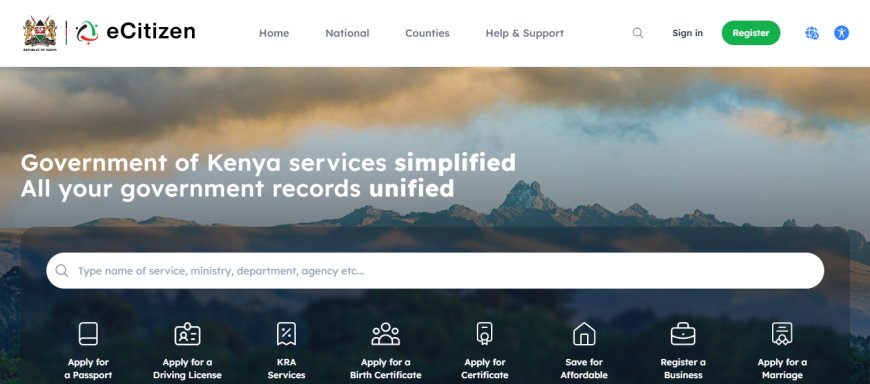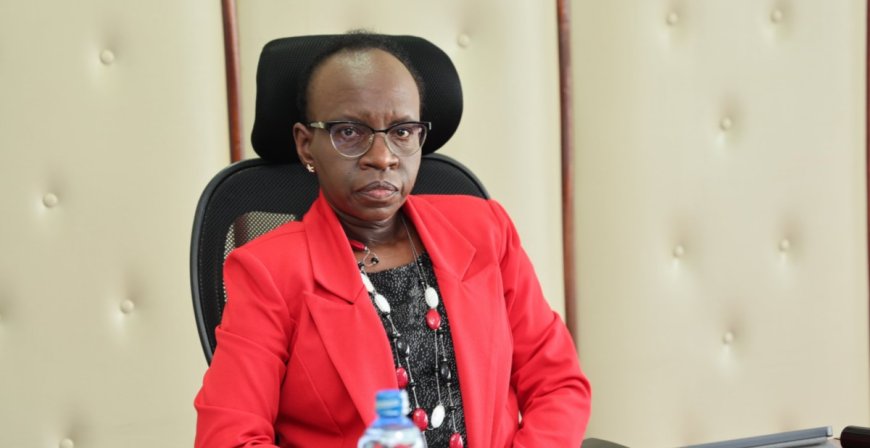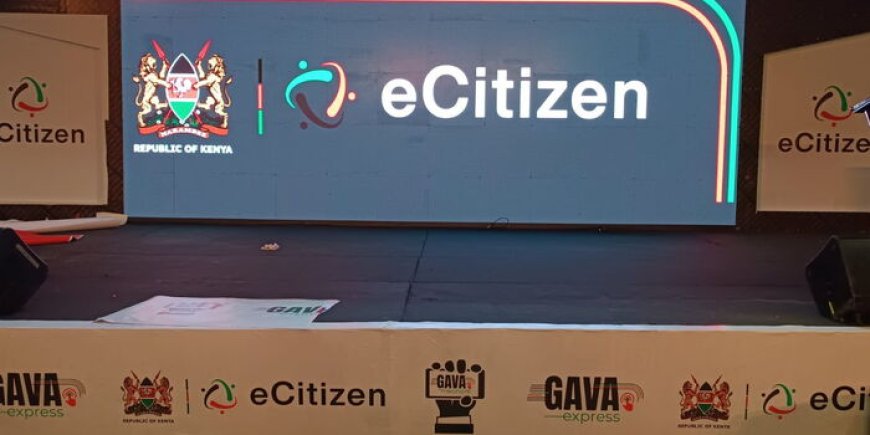eCitizen On Spot After Billions In Funds Unaccounted For
Gathungu highlights more than Ksh9.6 billion in suspicious transactions and weak oversight involving both financial service providers and various government ministries, departments, and agencies (MDAs).

The government's eCitizen digital payment platform is under fresh scrutiny after Auditor-General Nancy Gathungu raised concerns over serious accountability and transparency issues in the system, warning of possible misuse of billions of shillings and poor service delivery in major state agencies.
In her March 2025 audit report covering the platform’s operations for the financial year ending June 30, 2024, Gathungu highlights more than Ksh9.6 billion in suspicious transactions and weak oversight involving both financial service providers and various government ministries, departments, and agencies (MDAs).
The report also reveals that the National Treasury failed to establish Service Level Agreements (SLAs) with the financial service providers managing payments on the eCitizen platform.
The audit reveals that without formal Service Level Agreements (SLAs) in place, a massive Ksh7.05 billion held in collection and settlement accounts is essentially in limbo.

Auditor-General Nancy Gathungu. /KEBS
Gathungu cautioned that the lack of these binding agreements opens the door for financial service providers to potentially use public funds for their own gain, disrupting the operations of ministries, departments, and agencies (MDAs) that depend on timely revenue transfers.
“This lack of formal agreements compromises accountability and poses a risk to effective public service delivery,” the report warns.
The audit also flagged Ksh2.57 billion in receipts that couldn’t be matched to any invoices in the Pesaflow system, the digital platform handling government payments. These receipts were linked to partial, duplicate, or incorrect transactions, which auditors say increase the risk of fraud, misuse, and revenue loss.
The report adds, “The lack of revenue traceability raises serious accountability concerns,” noting that delays in remitting revenue ultimately hinder the delivery of government services.
Further analysis of the eCitizen reporting module uncovered inconsistencies in how collections and settlements are recorded. For example, while the Government Digital Payments (GDP) Unit reported Ksh2.24 billion as due to the Tourism Fund, actual collection records showed only Ksh1.72 billion—leaving an unexplained gap of Ksh515 million.
“This discrepancy highlights inadequacies in the eCitizen reporting module, raising concerns about the reliability and accuracy of the settlement reports generated by the system… [It] implies that not all revenue collected is remitted to MDAs and Counties which negatively affect service delivery,” Gathungu stated.
Overall, the AG warns that these systemic issues within the digital payment infrastructure could seriously disrupt essential public services. With funds being delayed, misdirected, or simply unaccounted for, both MDAs and county governments risk falling short in meeting citizens' needs.
Meanwhile, Members of Parliament are raising red flags over the murky transfer of ownership of eCitizen. The concern, led by Public Accounts Committee Chair Tindi Mwale, centers on how control of the platform appeared to revert to a private vendor despite an earlier official handover to the government.
Originally developed under a World Bank/IFC-funded initiative, eCitizen was handed over to the National Treasury in August 2017, with full documentation—including source code and contracts—transferred from the IFC. However, in a surprise move, the Ministry of ICT signed a second handover deal with the same local vendor in January 2023. MPs questioned how the vendor regained control after the 2017 transfer.
The Auditor General report revealed that, despite the second handover, the government still lacks full control over the platform and remains heavily dependent on the vendor. Mwale warned this creates a dangerous “single point of failure” for service delivery, especially since most public services rely on eCitizen.
The platform currently processes over 22,000 services and collects around Ksh700 million daily. Launched in 2014, it has grown to include services from major agencies like the Kenya Revenue Authority (KRA), the National Registration Bureau (NRB), and the National Transport and Safety Authority (NTSA).
MPs are demanding accountability and clarity, calling the unexplained retransfer a strategic risk that could compromise national service delivery.







